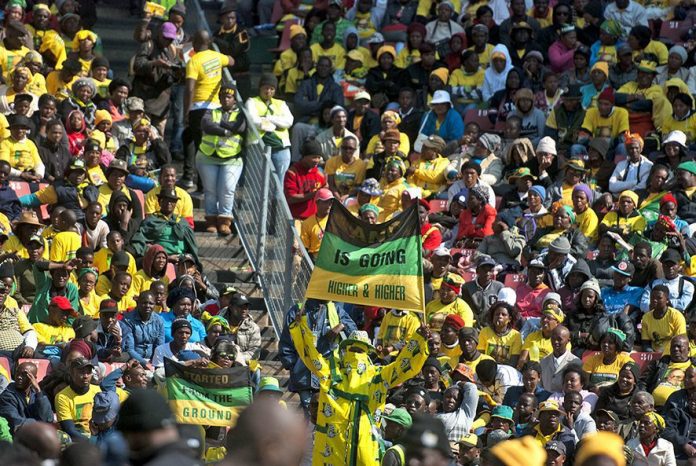The ANC has challenged its members to take personal financial responsibility for their participation in the upcoming January 8 celebrations, a radical departure from tradition.
This unprecedented move signals a significant pivot in the ANC’s operational strategy, pushing back against past practices and financial dependencies.
Breaking with its customary practice of transporting members en masse to national festivities, the ANC is now urging its followers to pay their own way, igniting a conversation about self-sufficiency ahead of the big jamboree this coming weekend in Khyelitsha township in Cape Town, targeted at wooing grassroots communities.
In an interview with Sunday World Engage last August, ANC treasurer-general
Gwen Ramokgopa, who found the party’s financial position in the doldrums when she took office in December 2022, said the party was now stable but actively exploring innovative methods to enhance the ANC’s bank balance.
Earlier, President Cyril Ramaphosa announced the ANC’s new crowdfunding initiative to stabilise finances and support their election campaign, where members and the public can contribute via a short SMS code for donations between R10 and R30, or through an EFT payment system for amounts ranging from R100 to R99, 000.
This week, ANC KZN spokesperson Mafika Ndebele unabashedly laid the January 8 celebrations decision bare, citing the impracticality of long-distance travel expenses.
“The specific space allocated for the provincial executive committee has been filled. We did not arrange any buses because it is quite a long distance, so it will not make financial sense.”
He described the party’s decision to host the celebrations in the DA-run City of Cape Town as “bold”.
Free State ANC secretary Dihelele Motsoeneng doubled down on the new approach,
heralding it as part of the party’s broader renewal strategy and proudly announced a provincial bash in Parys that aims to dwarf the national event.
“Yes, individual members who wish to travel to Cape Town are to fund their travel expenses, but that is coordinated through regional structures.”
Motsoeneng said the regional structures had coordinated individual branch members from across five regions, with Mangaung contributing the biggest number of confirmed travellers.
Motsoeneng added that the ANC in the province planned to host their own celebrations of the party’s birthday, which would be 10 times bigger than the national event.
“As a province, we will be hosting our provincial celebration in Parys on January 25, and we are expecting almost 20, 000 people.”
ANC Limpopo spokesperson Jimmy Machaka reiterated the province’s support for the January 8 event, despite the smaller venue. He could not confirm the number of members representing the province, as they had not finalised their plans.
“January 8 celebrations rotate among the provinces. We cannot say that they cannot host because of the size of the stadium,” he said.
The ANC’s support in the Western Cape has sharply declined over time.
The party went from 29.63% support in 2019 to just over 19% in last year’s polls.
ANC secretary-general Fikile Mbalula said the decision to hold this year’s festivities at the
Mandela Park Stadium over bigger venues like the Cape Town stadium was not informed by any financial constraints but rather an attempt to reach out to voters.
The Mandela Park Stadium can only hold 22, 000 people, significantly smaller than the 43 500-seater Mbombela Stadium in Nelspruit, which the party successfully filled last year.
Mbalula said the choice of Khayelitsha as the host venue signalled a shift in political focus, highlighting the ANC’s renewed commitment to grassroots engagement.
He said the choice of venue was not financially driven, positioning the party’s actions as rooted in genuine dedication to their constituents.
He pointed out that these areas held a deep symbolic value as centres of activism and historical party support. And by celebrating with the local populace, the ANC aimed to rekindle the fervour and loyalty of the party’s core supporters, especially against the backdrop of a low voter turnout in recent elections.
Mbalula’s confidence in the strategy was based on the expectation that direct community engagement would harness grassroots energy, ensuring the political agenda aligns with the people’s aspirations.
The ANC saw this proximity as a pathway to increased political awareness and, ultimately, higher electoral participation.
“We decided to go to the townships to celebrate with the people. Many people in our base areas did not come out in numbers to vote,” he told Sunday World.




